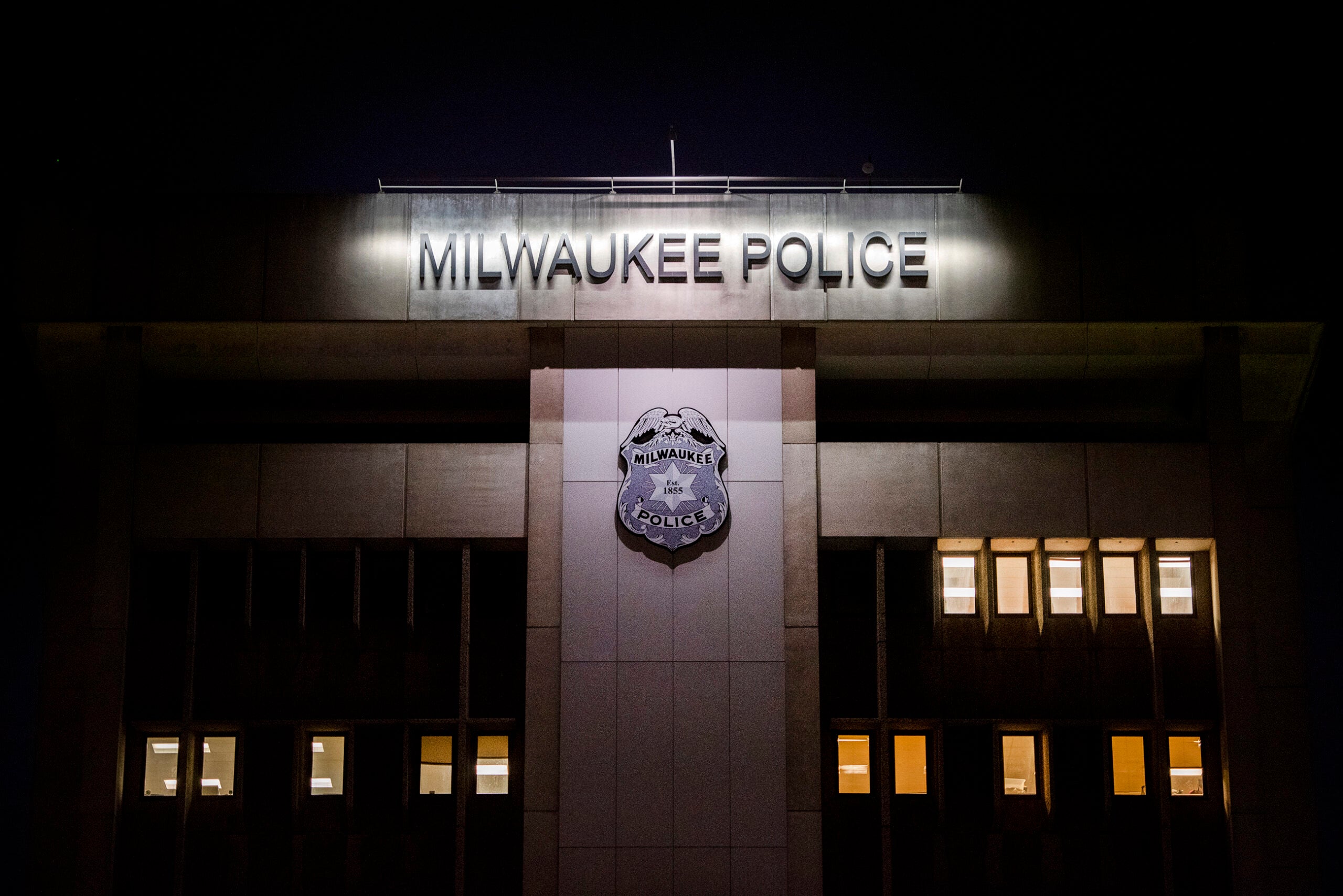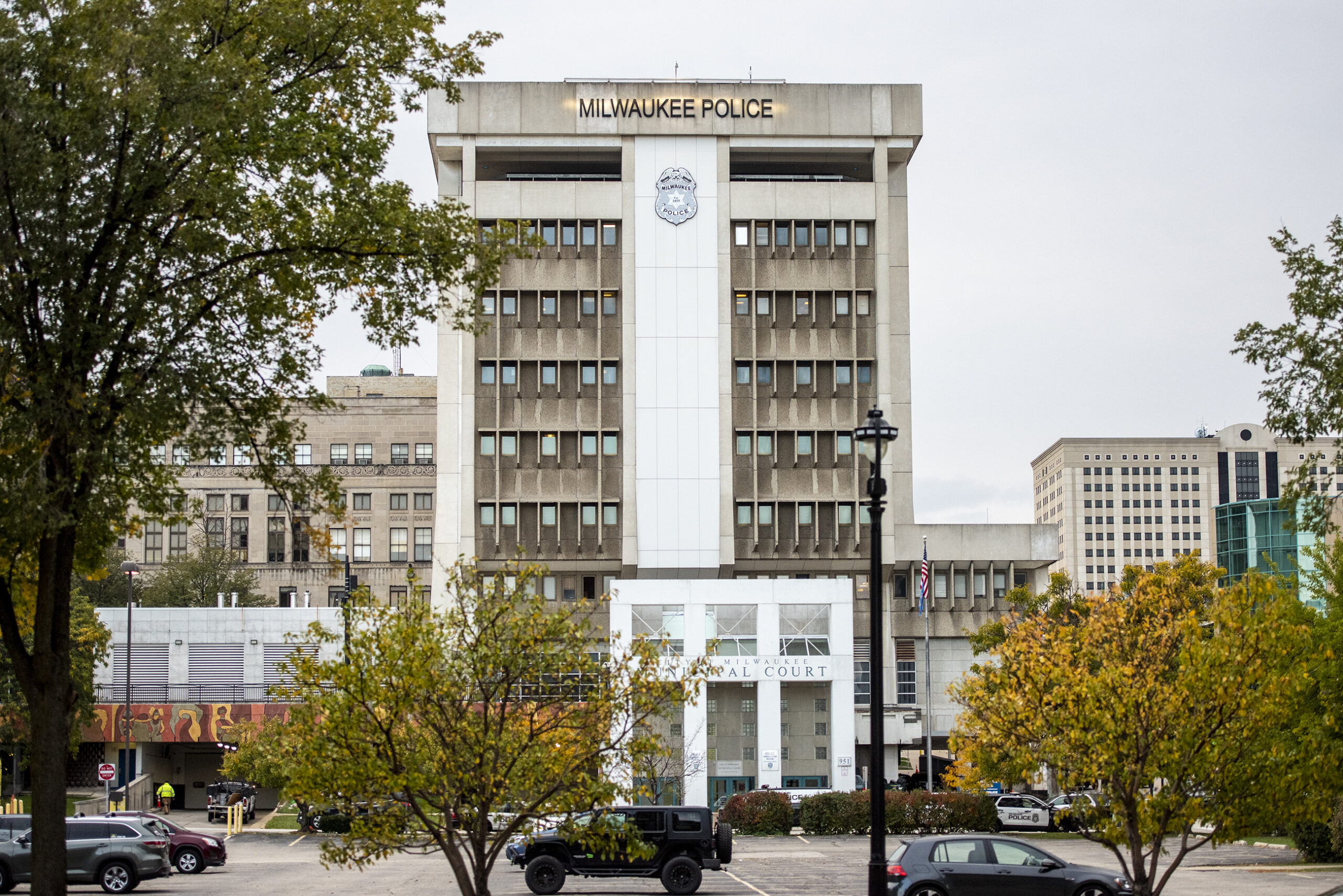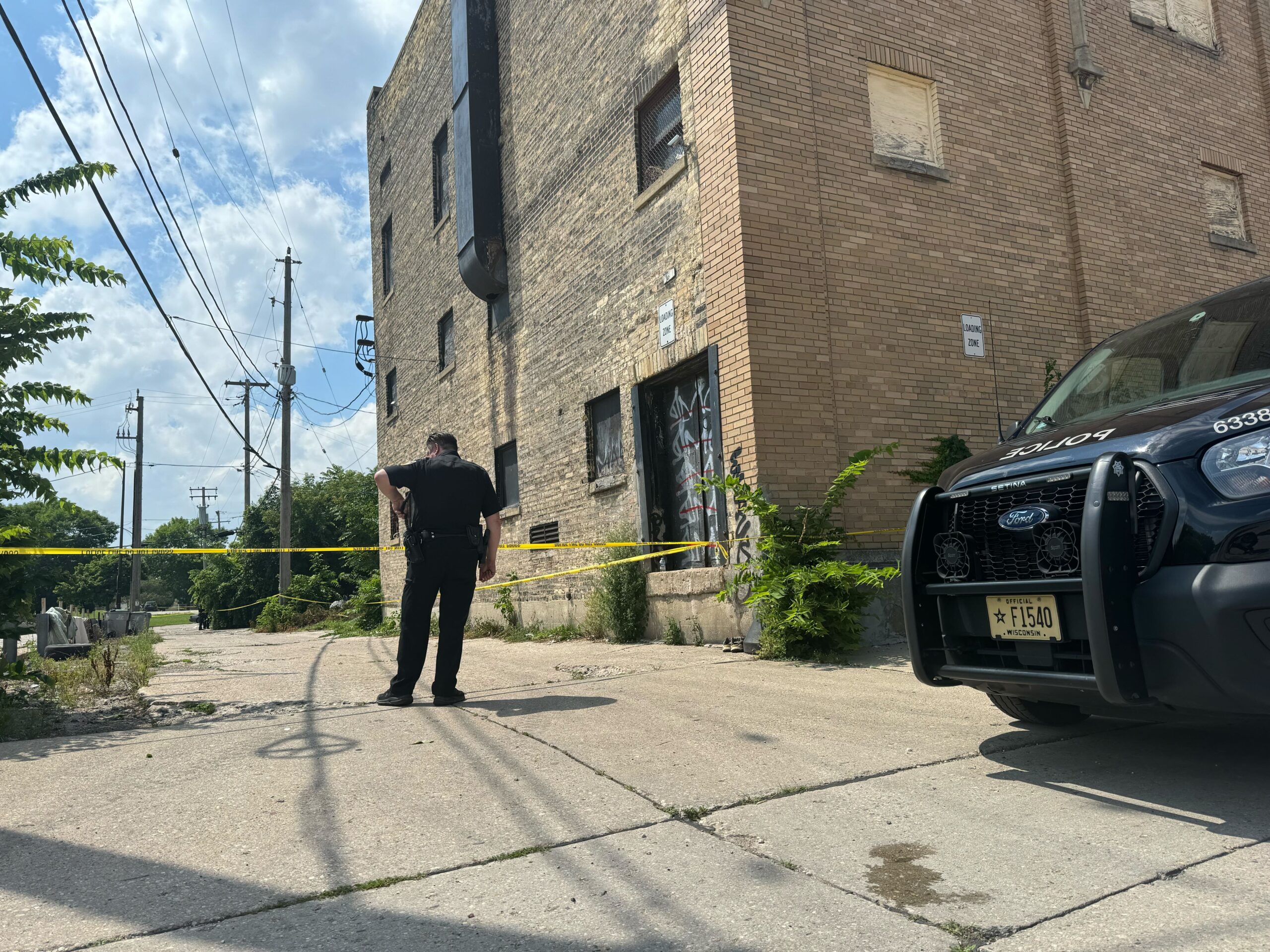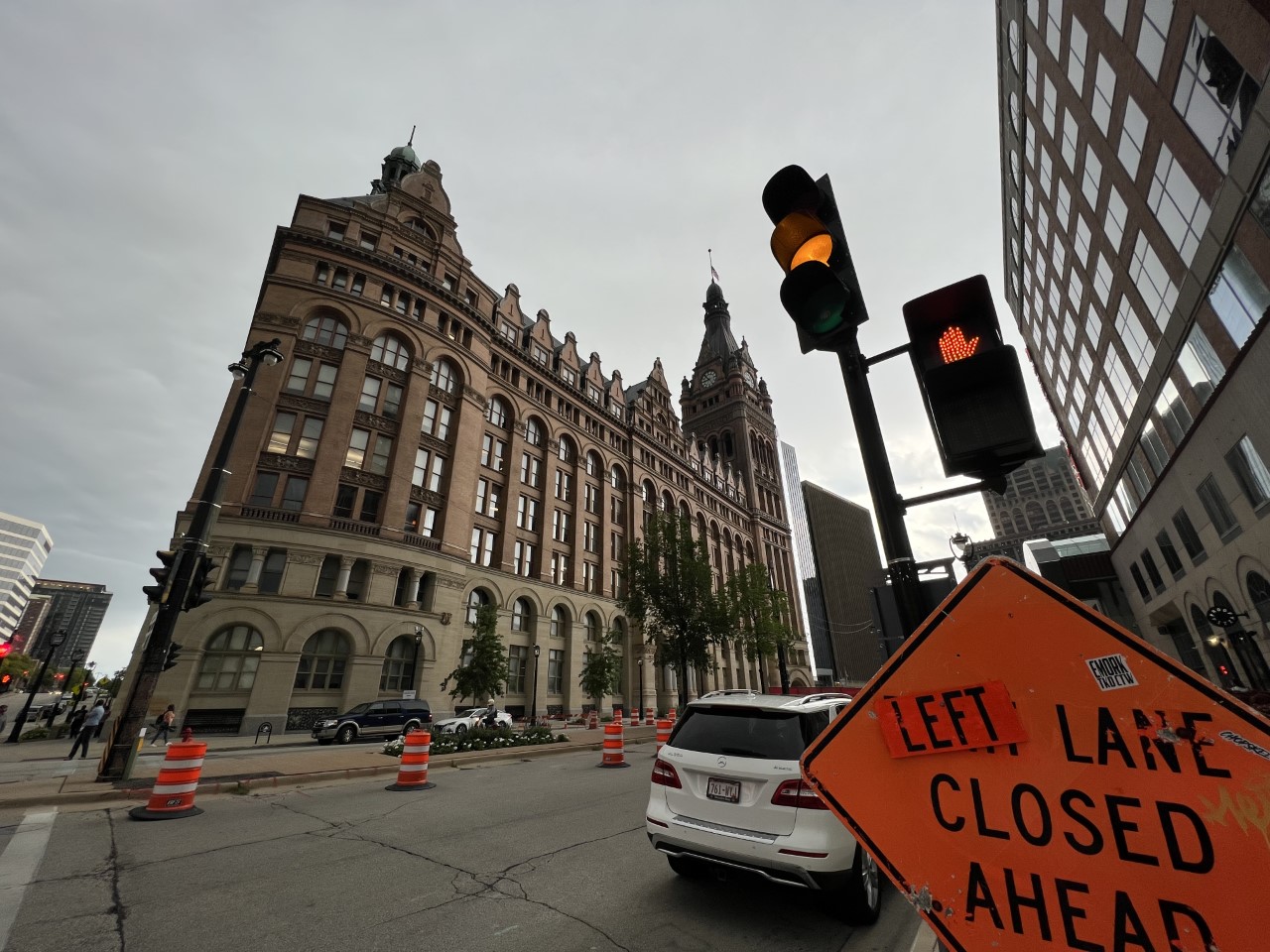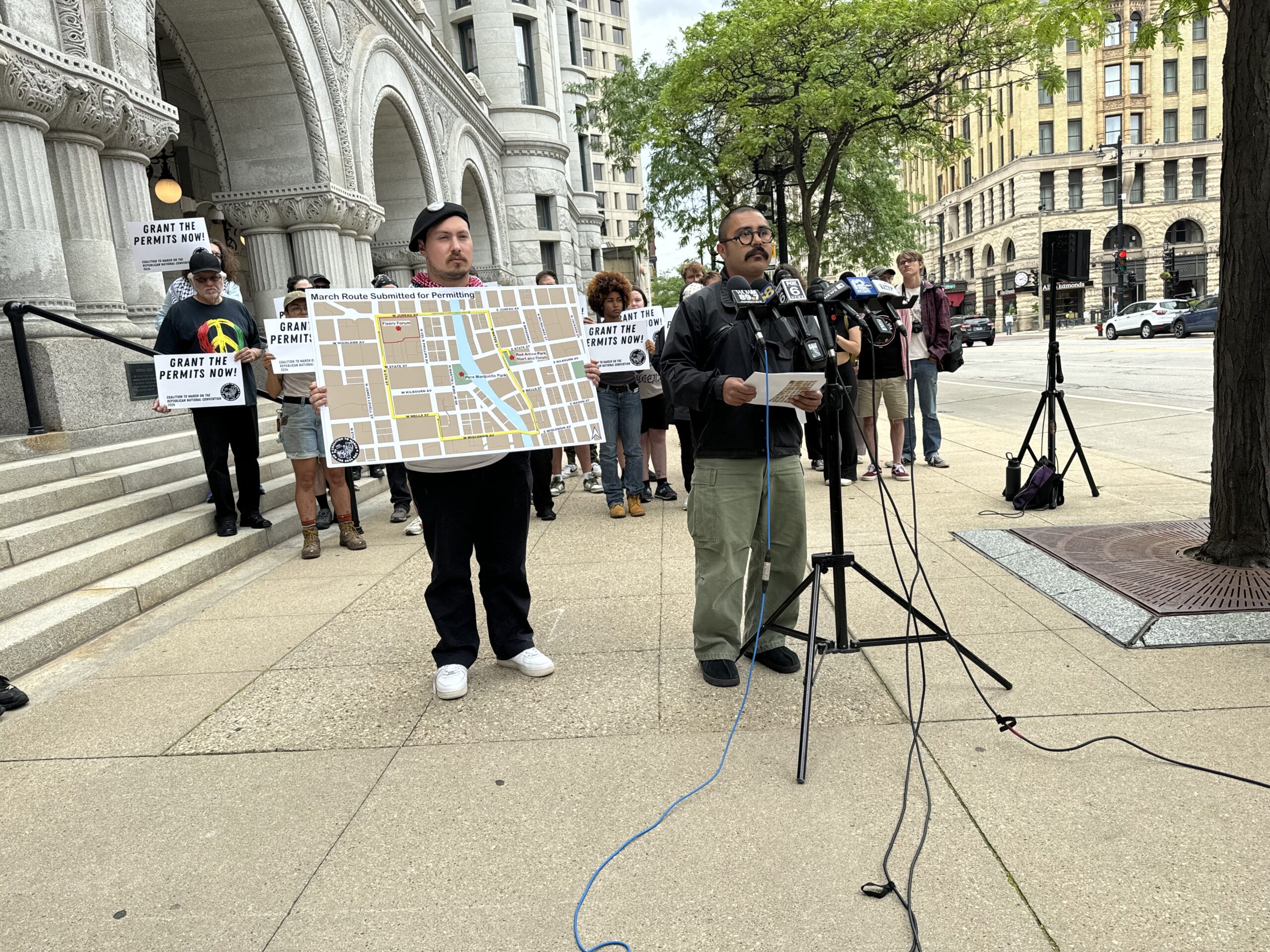The Milwaukee Police Department is working on a whistleblower protection policy to support its officers who report misconduct in use of force incidents.
Nicholas DeSiato, chief of staff for the Milwaukee police chief, said officers aren’t currently punished for making internal reports, but having stronger protections could accelerate accountability. The department began examining the issue following a recent report from the non-partisan Wisconsin Policy Forum, which found Milwaukee lacked an explicit whistleblower protection policy.
By comparison, Baltimore and Memphis have whistleblower protection polices and Kansas City’s mayor recently committed to developing a policy.
Stay informed on the latest news
Sign up for WPR’s email newsletter.
“Who would be mad at having whistleblower protection, right?” DeSiato said. “That was a very clear gap that didn’t exist. While it was something that was implied, it needs to be explicit. Because how can you measure people not reporting something because they felt like they weren’t protected?”
The Milwaukee Police Association is currently reviewing the policy before it goes to the city’s Fire and Police Commission for approval. Union representatives could not immediately be reached for comment.
DeSiato said the Milwaukee Police Department applied for and was accepted on June 5 to the Active Bystandership for Law Enforcement Project at Georgetown University Law Center, a police training program that promotes peer intervention.
Rob Henken, president of the Wisconsin Policy Forum, said since Dec. 1, 2020, there has been a considerable amount of action from the Milwaukee Police Department and the Fire and Police Commission to update policies and protocols.
“In large measure to be responsive to national calls for reform, but also local calls for reform,” Henken said.
The Milwaukee Police Department’s recent policy changes generally align with national policing reform efforts, but there is more work to be done, Henken said.
The forum was asked by Milwaukee Mayor Tom Barrett to look at the efforts being made by the department.
Even before the murder of George Floyd in Minneapolis and the shooting of Jacob Blake in Kenosha last year, Milwaukee encountered several high-profile incidents of alleged police misconduct that generated calls for reform in the city.
In response, city officials established the Collaborative Community Committee in 2017, which published a set of recommendations in fall 2019 including increasing community-oriented policing and amending the department’s stop-and-frisk policies.
Last month, the city banned chokeholds.
Use of force reforms such as these have gotten the most attention, but the Wisconsin Policy Forum’s report found the city could do even better by expanding violence prevention initiatives and transparency within the Police Department.
The forum compared Milwaukee to Baltimore, Kansas City, Memphis, Minneapolis, and Tucson to see how similarly sized police departments were handling reform.
Milwaukee’s Office of Violence Prevention within Milwaukee’s Health Department has grown in recent years to its current staff of nine and $3.7 million operating budget. By comparison, the Office of Violence Prevention in Minneapolis has a staff of 24 and an annual budget of $6.7 million. Baltimore and Kansas City also appear to commit more financial and/or staff resources to violence prevention than Milwaukee, according to the report.
“I think the one area where progress has been made, but where additional contemplation is merited, is in this very general area of reimagining police, but there too, we are seeing people rolling up their sleeves and look at this and wanting to work together,” Henken said.
The area of police reform that gets the most attention is “defunding” the police. Besides Minneapolis, which has shifted $8 million from its police department in 2021, no other city studied redirected funding from its police, according to the report.
In Milwaukee, where people have called for money to be diverted from the police department, 120 police positions have been lost due to growing salary and benefit costs.
Wisconsin Public Radio, © Copyright 2025, Board of Regents of the University of Wisconsin System and Wisconsin Educational Communications Board.

